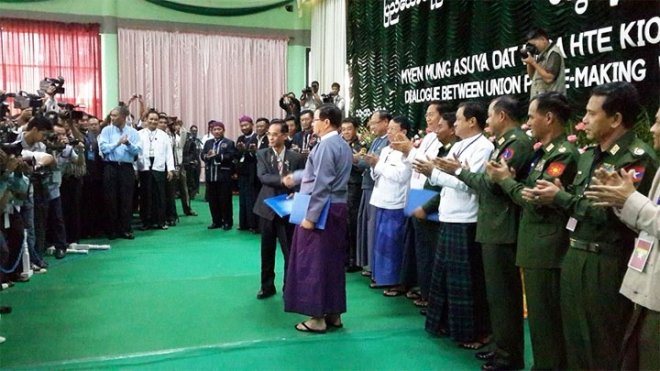Armed conflicts between government troops and armed ethnic groups could rise by 65% if a nationwide ceasefire is not followed by “political dialogue”, a member of the technical support team of the Peace-Making Work Committee warned yesterday.
“We need to have political dialogue [after the ceasefire] or the conflicts that occurred before will return and increase by 65%,” U Hla Maung Shwe said at a peace forum for nongovernmental groups in Yangon. The rules and regulations for the talks will be drafted at the peace conference planned for March of next year, he said at the 6th Civil Society Forum for Peace.

His view was echoed by U Aung Naing Oo, a member of the same team. “Some might doubt that political dialogue is necessary after a national ceasefire, but battles will not stop because an agreement has been signed,” he said.
The ceasefire agreement has to be followed by political talks to make it “strong and long lasting”, U Aung Naing Oo added. He said more information on the political dialogue will be announced in November, after the ceasefire is signed.
Nai Ngwe Thein, chairman of Mon National Democratic Party, also stressed the need for more talks after the ceasefire is signed. Without political dialogue, ethnic groups will rearm and conflict will escalate, he said.
Leaders of armed ethnic groups will meet with members of the Peace-Making Work Committee at a summit in Kachin State’s Laiza Township from 29-31 October to sign a nationwide ceasefire. This will be followed by a 3 November meeting to review the process.
The Peace-Making Work Committee has signed ceasefire agreements with 16 armed ethnic groups and held more than 130 rounds of peace talks.
Establishing peace with armed ethnic groups has been a priority of the quasi-civilian government of President Thein Sein. Individual ceasefire agreements have been reached with all armed ethnic groups, though conflict continues in Kachin and Shan states.



